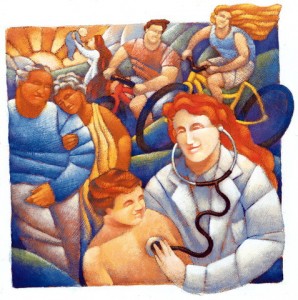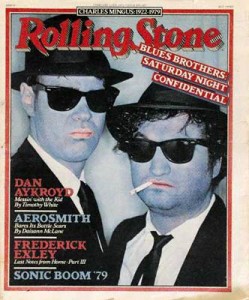 Who would ever consider having 24-hour ’round-the-clock family visiting in a hospital; beds for loved ones to stay overnight; deli-style counters on the patient floors to serve hot meals to loved ones, patients, and staff; popcorn machines in the lobbies; bread baking in the hallways; live music, massage, aroma, pet, humor, and drumming therapy; decorative fountains; and special mammography gowns for modesty? We did, and that was over 12 years ago. Our patient population tripled through the emergency room. The budget tripled, and the number of employees almost tripled.
Who would ever consider having 24-hour ’round-the-clock family visiting in a hospital; beds for loved ones to stay overnight; deli-style counters on the patient floors to serve hot meals to loved ones, patients, and staff; popcorn machines in the lobbies; bread baking in the hallways; live music, massage, aroma, pet, humor, and drumming therapy; decorative fountains; and special mammography gowns for modesty? We did, and that was over 12 years ago. Our patient population tripled through the emergency room. The budget tripled, and the number of employees almost tripled.At a lecture I once attended, Dr. Leland Kaiser said, “Give me the creative leader every time. They will always win over the traditional one.”
Well, yesterday, I met a creative leader. This young business entrepreneur was only about 34 years old. He owned a construction business that specialized in concrete. You know, poured basements, slabs, sidewalks, and driveways. When we discussed the current business climate, he smiled and said, “I’ve done okay.” Well, we all know that the construction business is literally on the skids right now and has been since the crash last year. NPR news ran a segment on Thursday about the 12,000 new government jobs being created in the Washington DC/Northern VA area. Seemed like good news until they said that these jobs represented only about a third of the more than 30,000 construction jobs that had been lost to date there.
When I asked our young rock star how he did it, he smiled and said, “I got this idea.” The number of times that those words have come out of my mouth is virtually immeasurable. Yet someone else has later described the related actions as an accidentally brilliant strategy. My response to him was, “So, what was the idea?” He smiled and said, “As soon as I got a bill, I paid it, that day, that minute, that instant.” As an employee of an accounting-type firm, my mind began to race with the traditional thoughts of “Oh, my gosh, how foolish. He could be getting interest on his money for 30, 60, or even 90 days, and he is paying his bills when they arrive?,” I thought to myself.
He then began to explain the outcome of his decision. “My suppliers love me, and because they don’t have to add in late fees, collection costs, lost interest, or simply lost money from late or uncollectable accounts receivable, this practice got their attention. Because they, in his words, “loved him,” he was able to negotiate better pick-up times for the concrete. This made him more flexible and productive as the trucks arrived at 8:00 AM with the morning’s first load of cement. The suppliers were also willing to negotiate lower prices for him than they could for the other contractors with whom he competed. Why? Because he paid them promptly every time.
He then went on to say that because his costs were lower than the other contractors, he could lower his prices to the builders with whom he wanted to do serious business, and, instead of the six or eight regulars that kept him going in the good times, he was now able to attract about 28 builders who wanted to work with him because he was on time, did good work, and, of course, was less expensive.
So, when he told me that he was doing okay, it meant that none of his employees had lost their jobs, his income had not gone down, and his business was virtually booming in an economy that has meant bankruptcy for more traditional construction oriented businesses. The really great news, however, is that this guy is a long lost, distant cousin about whom I had never known until just a month ago. So, I guess creativity runs in the family. Oh, yeah, and he’s a heck of a musician, too. Seems like Leland was right.
A Blueprint for Transformational Change: Nick Jacobs’ 2009 Graduate School address at St. Francis University’s 2009 commencement ceremonies






